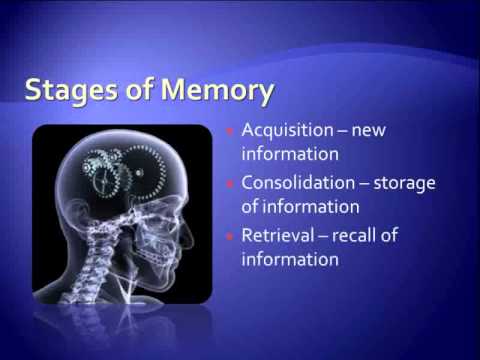If you use the Webster’s diction definition of memory, it is “the mental capacity or faculty of retaining or recalling facts, events, impressions or previous experiences.” Our memories define us — our emotions, our senses, our lessons and life events. We take in memories of delightful times we had as children; of things that have terrified us so we don’t take certain risks again; the accolades we receive for work well done, etc.
When we have memory lapses, like where we put our car keys or what we were doing before we were interrupted, we start to panic a little that we may be moving on to permanent memory impairment.
Science breaks down memory into six different memory types:
- Short-Term— retaining information for a brief period of time, such as a telephone number until you dial it.
- Recent—information you just learned, or going through day-to-day activities.
- Sensory — Recalling smells, sights, taste, touch and sounds
- Long-Term — Bringing up distant memories and experiences
- Declarative — General knowledge skills -such as vocabulary words and facts
- Procedural — Automatic motor skills – chewing, walking or riding a bicycle.
Most people go through an occasional ‘brain freeze,” where they discard occasional memory lapses due to selective hearing (like when your spouse asks you to do something), or information overload (when you’ve got too many balls in the air at the same time). As we age the memory lapses become more noticeable and people start associating it to Alzheimer’s or other forms of dementia and memory loss.
A doctor once told a friend who was worried about losing their memory that “your brain is just discarding information that you don’t need to make room for things you learning, kind of like the trash bin in your computer.” In other words, your brain is going through a process called “pruning,” similar to cutting weakened branches from a tree. The pruning process makes the connections (branches) stronger.
Outside influences can affect memory. These can include (but are not limited to) hormonal imbalance (like women in menopause), high blood pressure, low thyroid, diabetes, too much alcohol consumption, poor diet, lack of sleep, or medications.
One to twenty-six percent of Americans aged 65 or older experience a more serious memory decline (known as MCI — mild cognitive impairment). These do not impair judgment, but is a transitional phase of aging, were momentary lapses are more frequent are not usually a cause for future concern for the majority. Approximately 10% of those with a specific form of memory-related MCI will go on to develop some form of dementia – Alzheimer’s (AD) being the most common. It is believed that less than 10% of people 65 and over will actually develop full-blown AD, while 47% of those over 85 will, most of them being women due to loss of estrogen.
The good new is, studies have shown that the use of memory training and memory techniques can help to strengthen the brain cells, along with a healthy diet and exercise program. Studies show this can prolong, and maybe even reverse the loss of memory, or total incapacitation from dementia.
—
About the author:
Ron White is a two-time USA Memory Champion and memory speaker.
Sources:
Memory Lapses, Postit Science: http://www.positscience.com/human-brain/memory/memory-lapses
34 Menopause Symptoms: http://www.34-menopause-symptoms.com/memory-lapses.htm



